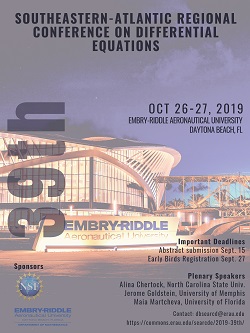Institution
Roger Williams University
Abstract
String Stability plays a significant role in the design of adaptive cruise control systems and the stability of interconnected systems in general. Even though the notion of string stability has been studied in detail in the context of delay-free systems, the literature has limited work for delay systems. In this work, we provide two characterizations of string stability along with their theoretical and practical importance. One characterization leads to Lyapunov description of string stability that provides a versatile tool in the design of adaptive control systems. A physical interpretation, which will motivate the other characterization provides an important way to visualize string stability. The latter characterization provides a better understanding of the process of designing a safe automobile platooning.
Characterizations of String Stability for Systems with Delays
String Stability plays a significant role in the design of adaptive cruise control systems and the stability of interconnected systems in general. Even though the notion of string stability has been studied in detail in the context of delay-free systems, the literature has limited work for delay systems. In this work, we provide two characterizations of string stability along with their theoretical and practical importance. One characterization leads to Lyapunov description of string stability that provides a versatile tool in the design of adaptive control systems. A physical interpretation, which will motivate the other characterization provides an important way to visualize string stability. The latter characterization provides a better understanding of the process of designing a safe automobile platooning.


Comments
View Parallel Session